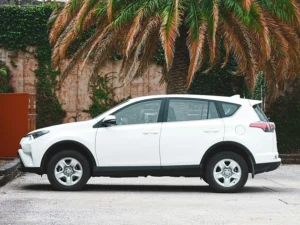Toyota pioneered mass-market hybrid technology with the introduction of the Prius in the late 1990s, and has since expanded its hybrid lineup to include vehicles like the Camry Hybrid, RAV4 Hybrid, and Highlander Hybrid. At the heart of these innovative vehicles lies the hybrid battery pack—a sophisticated component that works in tandem with the gasoline engine to deliver exceptional fuel efficiency.
Many current and prospective Toyota hybrid owners have questions about hybrid battery longevity, maintenance requirements, and replacement costs. Understanding these aspects of Toyota hybrid batteries provides practical advice for maximizing the lifespan of your investment.
Understanding Your Toyota Hybrid Battery
Toyota hybrid vehicles primarily use two types of battery technology:
Nickel-Metal Hydride (NiMH)
- Used in most Toyota hybrids until recent years
- Proven track record of reliability
- Comprised of multiple battery modules working together
- Generally heavier than newer lithium-ion alternatives
Lithium-Ion (Li-ion)
- Used in newer Toyota hybrid models
- Lighter weight and higher energy density
- Typically allows for greater electric-only driving range
- Used in plug-in hybrid models like the Prius Prime
Both battery types are designed for durability, with Toyota engineering them to last for the vehicle’s expected lifespan under normal conditions.
Toyota Hybrid Battery Lifespan
One of the most common questions from hybrid owners concerns battery longevity. Toyota hybrid batteries are designed for exceptional durability, but their lifespan depends on several factors:
Expected Lifespan by Model
- Prius (all generations): 150,000-200,000 miles under normal conditions
- Camry Hybrid: 150,000-200,000 miles
- RAV4 Hybrid: 150,000-200,000 miles
- Highlander Hybrid: 150,000-200,000 miles
Many owners report their original batteries lasting well beyond these figures with proper care and favorable driving conditions.
Toyota’s Battery Warranty
Toyota demonstrates confidence in their hybrid batteries through comprehensive warranties:
- Standard hybrid battery warranty: 8 years/100,000 miles (whichever comes first)
- California and states following California standards: 10 years/150,000 miles
- Enhanced warranty on newer models: 10 years/150,000 miles (verify specific coverage for your model year)
These warranties cover defects in materials or workmanship but may not cover gradual capacity loss, which is considered normal wear.
Signs of Toyota Hybrid Battery Deterioration
Recognizing the early warning signs of hybrid battery issues can help you address problems before they lead to complete failure:
Performance Indicators
- Decreased fuel economy: A noticeable drop in MPG may indicate the hybrid system isn’t functioning optimally
- Reduced electric-only driving capability: Shorter EV mode range or inability to maintain electric-only operation
- Engine running more frequently: The gasoline engine activating more often than usual
Dashboard Warnings
- Hybrid system warning light: Triangle with exclamation point or “Check Hybrid System” message
- Battery state of charge fluctuations: Unusual or erratic battery level display
- Check engine light: Often accompanied by hybrid system warnings
Operational Changes
- Rougher transitions between electric and gasoline power
- Less responsive acceleration, particularly from a stop
- Battery charge depleting more rapidly than before
If you notice these symptoms, having your hybrid system diagnosed by a qualified technician is recommended.
Toyota Hybrid Battery Maintenance Tips
While Toyota hybrid batteries are designed to be maintenance-free, these strategies can help maximize their lifespan:
Regular Driving Habits
- Drive regularly: Hybrid batteries benefit from regular use; extended periods of non-use can accelerate battery deterioration
- Avoid extreme temperatures when possible: Parking in garages during extreme heat or cold protects battery life
- Balance highway and city driving: Regular mixed driving helps maintain optimal battery conditioning
Charging Best Practices (For Plug-in Hybrids)
- Follow Toyota’s recommended charging procedures
- Avoid frequently depleting the battery completely
- Use manufacturer-approved charging equipment
General Maintenance
- Keep cooling vents clear: The hybrid battery cooling system must function properly to prevent overheating
- Follow Toyota’s scheduled maintenance: Regular servicing ensures all hybrid components function optimally
- Address 12V battery issues promptly: The conventional 12V battery supports the hybrid system, and its failure can strain the main hybrid battery
Battery Reconditioning
Some independent shops offer hybrid battery “reconditioning” services, which can include:
- Individual module testing and replacement
- Cell balancing
- Cleaning of electrical connections
- Restoration of cooling system efficiency
These services typically cost $500-$1,500 and may extend battery life, though results vary.
Toyota Hybrid Battery Replacement Options
When replacement becomes necessary, several options exist:
New OEM Battery
- Cost: $2,000-$4,500 (varies by model, excluding labor)
- Pros: Factory quality, full warranty, longest expected lifespan
- Cons: Highest cost option
Remanufactured Battery
- Cost: $1,500-$3,000 (varies by model, excluding labor)
- Pros: Lower cost than new, typically includes warranty
- Cons: Quality varies by remanufacturer
Used Battery
- Cost: $500-$1,500 (varies by condition and source)
- Pros: Lowest initial cost
- Cons: Unknown remaining lifespan, limited or no warranty
Independent Module Replacement
- Cost: $700-$2,000 (varies by number of modules needing replacement)
- Pros: Addresses only failed components, more environmentally friendly
- Cons: Requires specialized knowledge, may leave working but aged modules in place
DIY vs. Professional Service
Hybrid battery service involves high-voltage components that require specialized training and equipment:
Professional Service Advantages
- Safety: Certified technicians are trained to handle high-voltage systems
- Diagnostics: Access to specialized equipment for accurate problem identification
- Warranty protection: Maintaining professional service records preserves warranty coverage
- Insurance: Professional shops carry insurance for hybrid-related repairs
When DIY Might Be Appropriate
- 12V battery maintenance: The conventional battery can be serviced similarly to non-hybrid vehicles
- Basic monitoring: Using OBD-II scanners designed for hybrids to check battery health
- Air filter cleaning for battery cooling system: Some models have accessible filters
Important Safety Warning: Never attempt to open, disconnect, or service the high-voltage hybrid battery without proper training and equipment. The system contains potentially lethal voltage levels.
Model-Specific Considerations
Different Toyota hybrid models have unique battery characteristics:
Prius (All Generations)
- Most documented long-term reliability data
- Extensive aftermarket support
- Multiple battery replacement options
Camry Hybrid
- Battery pack located near the rear seat
- Excellent cooling system design
- Often achieves longer-than-average battery life
RAV4 Hybrid
- Higher load demands due to vehicle weight
- Advanced battery management system
- Battery positioned for improved weight distribution
Highlander Hybrid
- Largest battery capacity in Toyota’s non-plug-in lineup
- Engineered for heavier loads
- May experience more strain in frequent towing scenarios
Environmental Considerations
Toyota hybrid batteries are recyclable, and Toyota has established a comprehensive battery recycling program:
- 96% of battery components can be recycled or reused
- Toyota dealers accept used hybrid batteries for proper recycling
- Many components find second lives in industrial applications
When replacing your hybrid battery, ensure the old unit is properly recycled through Toyota’s program or another certified recycling facility.
Maximize Your Toyota Hybrid Battery Investment
Toyota hybrid batteries represent a remarkable engineering achievement, often delivering 150,000+ miles of reliable service with minimal maintenance requirements. By understanding the factors that influence battery longevity and recognizing early warning signs of deterioration, owners can maximize their hybrid investment and minimize unexpected expenses.
Regular vehicle maintenance, balanced driving habits, and prompt attention to warning signs all contribute to extended hybrid battery life. When replacement becomes necessary, evaluating the available options based on your budget and how long you plan to keep the vehicle allows for an informed decision.
Don’t let concerns about hybrid battery life prevent you from enjoying the exceptional efficiency and environmental benefits of Toyota hybrid technology. With proper care, these sophisticated vehicles deliver years of dependable, cost-effective transportation.
Schedule a hybrid system checkup today to ensure your Toyota hybrid battery is performing at its best, and enjoy the peace of mind that comes with knowing your vehicle’s most critical component is in optimal condition.
Toyota hybrid giving you trouble? Ian’s Auto in Broken Arrow specializes in hybrid vehicle maintenance and repair, including comprehensive battery health checks and reconditioning services. Our hybrid-certified technicians have the expertise and equipment to keep your Toyota Hybrid performing efficiently for years to come. Call (918) 251-5305 to schedule your hybrid system evaluation today!




